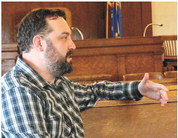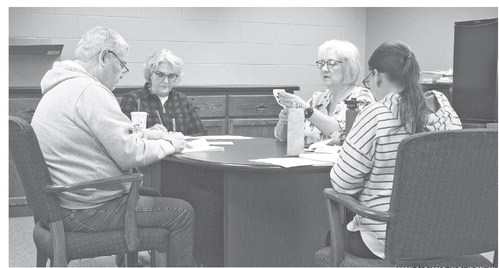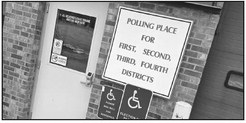Committee keeps curriculum in place following religion complaint
A Complaint Procedure Committee for the Gilman School District met a for a second time on Monday, Jan. 6 to vote on whether the board will take action to change Core Knowledge Language Arts (CKLA) curriculum at a district family’s request.
The committee originally met on Dec. 11 after Jacob and Emily Doro petitioned the school board due to a discussion in the second grade classroom about Buddhism and Hinduism in the Indus River Valley, India. Religions are introduced as part of world culture studies through CKLA curriculum.
A letter from the Doro family stated, “Our complaint is not about the teaching staff, or the potential for indoctrination, but entirely the exposure to the variety of religions.” The letter goes on to state, “…without giving parents the time to establish their own family values, morals, and faith, it is over the children’s heads when they have not been taught something to contrast against. Which makes these topics beyond the maturity level of the students.”
The petitioners were present for the second meeting but were not invited to participate in the deliberations.
Committee chairperson Valerie Kulesa reported calling other school districts as part of her research into how other areas handle complaints of this nature and one suggestion was to allow the student to step out of the classroom while religion was being discussed.
“I called Colby, I called Abbotsford, I called Thorp,” said Kulesa. “The only thing that we talked about was if it would be possible maybe when they’re doing the certain sessions of different religion if they could step out of the room, that was a suggestion that was given to me.”
That raised the question of how much the student stepping out of the classroom would actually miss as some topics are layered throughout the curriculum rather than being a one-time conversation.
“That’s not an every day thing, I don’t think,” stated Kulesa of lessons that include various religions of the world.
“How much is that going to put them behind the rest of the class?” asked committee member and teacher Lori Brenner.
“I think the struggle though that they’re having is that it’s embedded within, so its not just 15 minutes here and there, it’s going to come up over and over in the content throughout the curriculum and it builds on itself,” said committee member Holly Bacha. “If we try and delete parts, you know, then we’ve also created holes in the scope and sequence, then someone needs to find a way then to rebuild that,” she continued.
Principal Phil Tallman and District Administrator Walter Leipart were present for the meeting, though they were not voting members of the committee.
It did not appear as though committee members took issue with the current CKLA curriculum, but rather the best way to help families navigate difficult discussion topics.
“I looked through some of the materials,” said Brenner. “I didn’t see anything that stood out.”
“I feel very strongly that this curriculum is designed with literacy at it’s core, and when we’re scaffolding skills the way that it is, it is stronger than anything that I’ve seen in my teaching career at this point,” said Bacha.
Committee member Jeannie Entrekin empathized with the Doros. “A lot of religions are very sensitive to what their kids learn from different cultures and bring home to their other children,” she said. Entrekin shared her experience in the district where her family lived in Virginia. “There was a form that at the beginning of every year you would have to sign if you were okay with them teaching certain cultures and religions to your child, and if you were not you had to provide proof of why, and a lot of times its religious reasons why.”
Leipart made it clear that the district has protocol in place for this very reason, stating, “We already have board policy that says that that we will provide an alternative curriculum to any individual for any reason, you just say, ‘I object to this, it’s against my religion,’ okay fine, we don’t ask more questions than that.”
He continued, “That is our responsibility as educators, to ensure that there isn’t a gap because of a decision that a parent makes, it’s not for the committee to determine can an alternative be provided, that is already a must, that’s not up for debate.”
Bacha asked if CKLA curriculum had to be approved prior to implementation, and Leipart stated that the board had to vote and approve CKLA before it could be taught to students.
Bacha asked what the next step would be if the committee did vote in agreement with the Doros and decide to change the CKLA curriculum.
“Then we would have to dig into where exactly we would be changing it, how are we going to be changing it, are we going to have the kids come out like one of your suggestions, are we not teaching the rest of the class that curriculum, those are questions that will have to be answered depending on the direction of this vote,” said Tallman.
Committee members were then asked to vote on whether or not the district would make changes to the current curriculum to satisfy the petitioners. Bacha, Kulesa, and Entrekin voted to leave the CKLA curriculum as is with the students having the option to step out of the room while the class discussed topics that are against the student’s religion. Brenner voted with the Doros.
The committee was sympathetic with the Doros, with Bacha stating, “I think it’s important what you guys are doing in terms of testing what is working and I think keeping your educative body accountable so they have to stand on what they decide for the students.'
“And I get that we’re teaching these kids all this stuff so much younger than what it was,” said Kulesa.
No additional follow-up meetings were scheduled.






